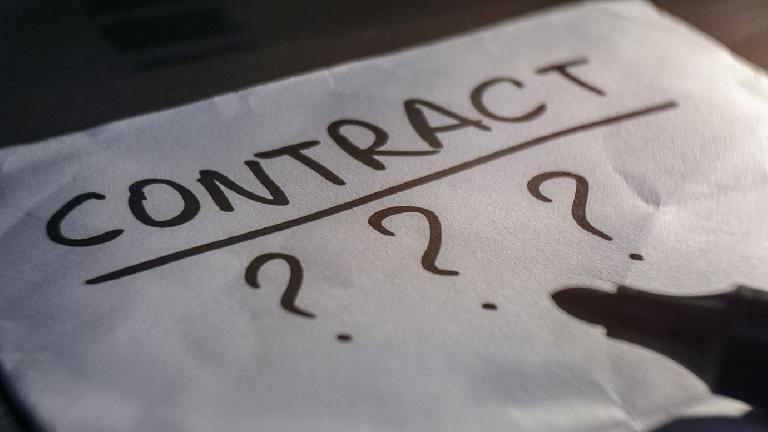Being an artist in the modern digital world is a good thing, as it can bring you a variety of opportunities. However you must pay careful attention to contracts if you want to keep the rights to your music and sound work - whether you work with a music label, publisher or directly for a client. Here I want to share a short list of tips based on my own experience of working with various companies and music labels, involving my music and sound design under the Histibe alias. International music contracts are often very similar so there’s a good chance this article will be useful for independent music producers and sound designers all over the world.
1. Understanding The Basics Of Simple International Music Contracts
There are two options: a one-time payout and a royalty split. With the first option of a one-time payout you can get a certain amount of money and sell the full copyrights to your work — it’s very simple and clear.
The thing is, under the second option of "royalty split" many labels or sound design companies try to exclusively obtain copyrights in the same way as with the one-time payout option, but without paying any money for this. In this situation, artists or sound designers don't have any guarantees that they will receive a share of the profits, and they consciously or unconsciously hand over the rights to their music or sound in return for mere promises. This often happens to unknown artists or artists who just need some exposure and just want to publish their music “somehow” and “somewhere”.
However, in the future when artists become more mature and realize they don't have the copyright to their own music or sounds - or royalties for them - promises or exposure are not good enough. The label or sound design company only cares about the number of new producers with whom they can pull this trick over and over again.
It means sometimes a label's goal is to have a large number of different new artists who will hand over the copyright to their music or sound packs and help to grow the label's name at the start. And the label doesn't really care about long-term relations with the artist. This situation affects the artist in the most negative way. However, here are some steps you can take to protect yourself.
2. The Most Friendly Options For A "Royalty Split" Deal
With a "royalty split" where the label wants to obtain exclusive copyrights you must ask for guarantees in the contract, whether it's a music album or a sound pack.
- Ask for an advance payment every time you deliver a music release or sound pack.
- Ask for a rule in the contract where the label guarantees a certain quarterly or yearly amount of profit from your release or sample pack, and if it's not going to happen or the label can't guarantee it for some period of time, you have the right to terminate the contract.
- Ask for a certain period of exclusive ownership. That is, you can give exclusive copyrights for 3 or 5 years, just to see how things go with the label, the level of their communication and their attitude. However, if everything goes just fine and there are no big issues, both of you have the right to extend the contract for a new term.
- Ask for a minimum 50/50 royalty split, even if the label says that they need to spend money for marketing, promo and all the rest. Keep in mind that music artist and sound designers also need money for studio gear, website hosting, food, bills and room rent. Explain this to them if they don’t seem to understand it.
In a case where the label doesn’t want to offer any of these guarantees, you can simply give them full administrative exclusive rights for 3 years to start with on condition that both sides have the right to extend the contract for a new term again, and see what happens.
3. The Monopoly Of Label-Oriented Music Agreements
It’s sad but true that there’s a silent monopoly by the labels on music contracts for independent musicians, producers and sound designers. They try to dictate the rules, and if you don't want to agree with them, they might manipulate you by saying something like: “If you don't agree with us, sorry, goodbye”. However there are also labels on the market that are more friendly and artist-oriented and offer equal rights. So my advice is just to find one that will work for you and will be open to new creative directions without issues arising. If the label is not loyal and is trying to pressure you at an early stage, just think one more time if you really want to be a part of it.
4. Deliberately Low Buyout Fees For Young Artists - And Other Manipulations
Sometimes labels try to make a deliberately low price offer to a young artist or unknown talented sound designer because of one simple thing – they’re trying to buy for less and sell for more and make a profit. That's why it’s important to be aware of it and try to look at relevant rates on the market for a one-time payout. Ask other, older musicians and people from the industry, or use Google to research it. Keep in mind that the minimum artist-oriented price for 1 sample pack is $1000 and the maximum is up to $5000 or higher depending on your name, level, portfolio, and skills. For original music tracks for commercial remixes the artist-oriented price can be anywhere from $1000 up to $10K and higher.
As for other manipulations, sometimes a music label, publisher or music company will say they need to obtain full lifetime rights to your music, because they need it for clients or other websites. This is not true. Ask for proofs, ask for a valid copy of the contract with the client. In general, do not be afraid to ask for details. The truth is, if you give them “full administrative exclusive rights for 3 years or more” they can do the same as if they had “full lifetime rights”, the only difference is the period of time such as 3 or 5 years. However, this difference is a great guarantee to you as an artist.
As for commercial usage (TV and film), very few clients need to obtain full rights because they know it's expensive and not really effective. That's why they usually ask a label or publisher for non-exclusive rights for one or two years or for one particular project. It means that for a label, having full administrative rights (not ownership) is more than enough for any commercial agreement.
However, in a case where a music label finds you some client who will need exclusive new music for a lifetime period, they will mostly need totally new fresh work (not something from an existing catalog) and this is a whole different story.
5. Do Not Send High Quality Master Recording Before You Sign A Contract
Yes, this is an important part. You can talk a lot, work a lot and be super friendly to each other, and then BOOM they send you a contract with tons of new parts or some unexpected details. So please, try to be restrained. Don't run blindly and smile to everybody in return for nothing more than promises of a bright future. Don't send master recordings right away. Also, do not trust in the promises of big names or big companies. They have much more power then you when it comes to pressure and public manipulation in the end. Rather, trust in the paragraphs of the deal. Be more professional at the paperwork stage, ask for an NDA and read the contract.





 © 2024 Ask.Audio
A NonLinear Educating Company
© 2024 Ask.Audio
A NonLinear Educating Company
Discussion
Want to join the discussion?
Create an account or login to get started!